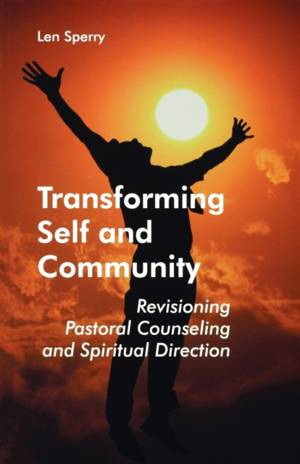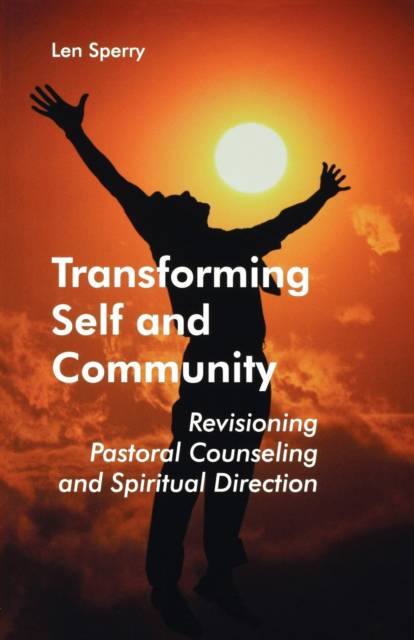
- Retrait gratuit dans votre magasin Club
- 7.000.000 titres dans notre catalogue
- Payer en toute sécurité
- Toujours un magasin près de chez vous
- Retrait gratuit dans votre magasin Club
- 7.000.0000 titres dans notre catalogue
- Payer en toute sécurité
- Toujours un magasin près de chez vous
Transforming Self and Community
Revisioning Pastoral Counseling and Spiritual Direction
Len SperryDescription
Catholic Press Association Award Winner!
Both spiritual direction and pastoral counseling tend to be partially responsive to client needs and expectations. Many of the theories underlying the practice of spiritual direction and pastoral counseling are based more on psychology than spirituality. They minimize or exclude character and moral concerns and may even unintentionally foster individualism and spiritual narcissism. Transforming Self and Community offers an approach to spiritual direction and pastoral counseling that is holistic, that integrates spiritual and moral constructs with the psychological and emphasizes all aspects of transformation, including social transformation.The integrative approach inTransforming Self and Community provides psychological, spiritual, and moral perspectives for understanding and assisting individuals with their spiritual journey of development. It describes and illustrates clinically useful guidelines for the practice of spiritual direction and pastoral counseling. It includes case studies as well as figures, tables, and charts that highlight and summarize main text points.
Transforming Self and Community is primarily for professionals who practice, teach, or are learning how to do spiritual direction or pastoral counseling. Nevertheless, spiritual seekers, clients, or prospective clients of spiritual direction or pastoral counseling will also find this book enlightening.
The book has eight chapters. Chapter 1 surveys and describes trends in the current practice of pastoral counseling and spiritual direction. Chapter 2 reviews four prominent theories underlying the practice of pastoral counseling and spiritual direction. Chapters 3, 4, and 5 provide detailed review of various constructs in the spiritual, psychological, and moral perspectives as they relate to the practice of pastoral counseling and spiritual direction. Chapter 6 presents a holistic model which integrates key constructs from the spiritual perspective, the moral perspective, and the perspective dimension in relationship to the outcome dimensions of transformation. Chapter 7 and Chapter 8 illustrate the integrative model in action. Finally, Chapter 9 summarizes the main points of the book and speculates on future developments regarding the theory and practice of spiritual direction and pastoral counseling.
Chapters are Spirituality, Spiritual Direction and Pastoral Counseling: Recent Trends, "Theoretical Bases of Pastoral Counseling and Spiritual Direction," "Spiritual Perspective on Transformation," "Moral Perspective on Transformation," "Psychological Perspective on Transformation," "An Integrative Model of Spiritual Direction and Pastoral Counseling," "An Integrative Approach to Spiritual Direction: A Case Study," "An Integrative Approach to Pastoral Counseling: A Case Study," "Spirituality, Spiritual Direction and Pastoral Counseling: Some Future Prospects."
Len Sperry, MD, PhD, is a clinical professor of psychiatry at the Medical College of Wisconsin and a professor at Barry University. He has practiced spiritually attuned psychotherapy, pastoral counseling, and spiritual direction for over 30 years and has written more than 30 books including Ministry and Community published by Liturgical Press.
"Spécifications
Parties prenantes
- Auteur(s) :
- Editeur:
Contenu
- Nombre de pages :
- 208
- Langue:
- Anglais
Caractéristiques
- EAN:
- 9780814628034
- Date de parution :
- 01-05-02
- Format:
- Livre broché
- Format numérique:
- Trade paperback (VS)
- Dimensions :
- 137 mm x 209 mm
- Poids :
- 281 g

Les avis
Nous publions uniquement les avis qui respectent les conditions requises. Consultez nos conditions pour les avis.






